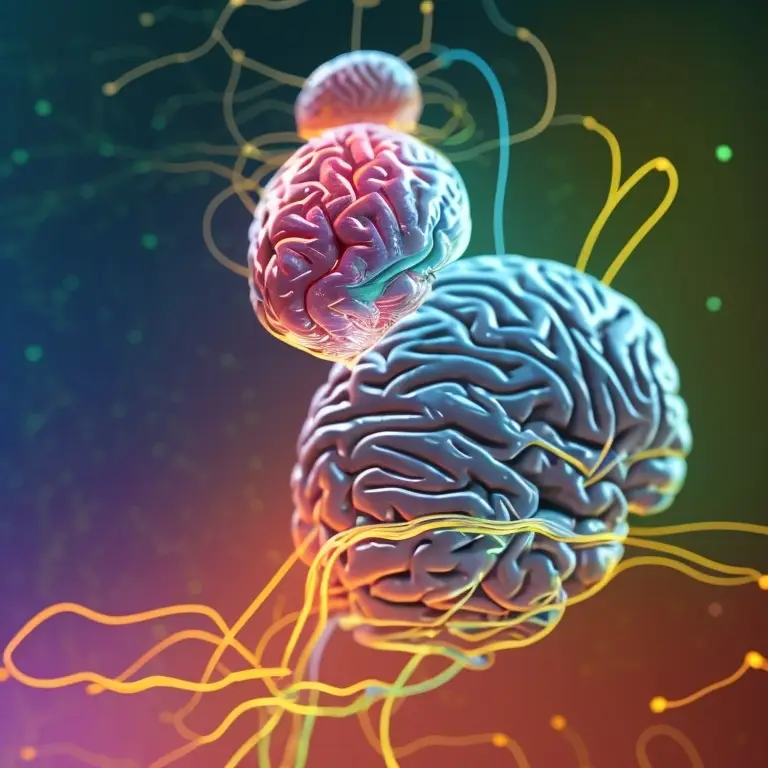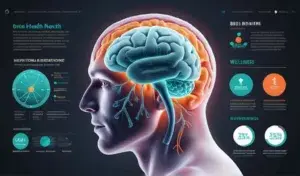Table of Contents
How Does Your Brain Really Work
The human brain is the most complex and mysterious organ in our body which can make brain health both a challenge and a mystery. Your brain is responsible for everything you think, feel, and do. Yet, how much of our behaviour and decisions are we truly aware of? This question forms the crux of the documentary “Your Brain: Who’s in Control?” aired by NOVA on PBS. Let’s dive into the intricate workings of our brain to understand what really drives us.
Unconscious Processes
A significant portion of brain activity occurs without our conscious awareness. Neuroscientist and clinical psychologist Heather Berlin highlights that much of what happens in our brains is unscripted and beyond our direct control. Everyday actions, like walking or driving, often occur without deliberate thought, pointing to the profound influence of our unconscious mind.
The Illusion of Control
The brain comprises nearly 90 billion neurons, creating the illusion of a single, cohesive self. However, this sense of unity is deceptive. The analogy of Pinocchio and the puppeteer illustrates how different brain regions pull the strings behind the scenes. We believe we are in control, but our brains often have other plans.
Sleepwalking: A Glitch in the System
Sleepwalking offers a fascinating glimpse into the brain’s complexities. At the Icahn School of Medicine, researchers study patients who perform complex tasks like painting or cooking while asleep. These activities occur because parts of the brain, like the motor cortex, become active while the prefrontal cortex, responsible for decision-making, remains dormant. This split reveals how intricate behaviors can emerge without conscious control.
Anesthesia and Consciousness
Anesthesia provides another lens to study brain health and brain function. Neuroscientist Emery Brown uses EEGs to observe how brain activity changes under anesthesia. The transition from consciousness to unconsciousness is marked by a significant reduction in brainwave activity. The thalamus, a central communication hub in the brain, plays a crucial role in this process. Understanding how anesthesia works helps delineate the thin line between awareness and unconsciousness.
Split-Brain Phenomenon
Split-brain surgeries, performed to treat severe epilepsy, have uncovered astonishing insights into brain health and brain function. These surgeries sever the corpus callosum, the bundle of fibers connecting the two hemispheres of the brain. Researchers found that each hemisphere can function independently, leading to situations where one hand may perform an action without the other hand knowing why. This phenomenon underscores the divided nature of our brain and challenges the notion of a singular, unified self.
Emotional and Social Influences
Emotions and social interactions profoundly influence our brain health and activity. Luke Chang’s research on the trust game demonstrates how feelings like guilt can drive cooperative behaviour. Brain scans reveal that regions like the insula are active during these emotional decisions, acting as a thermometer for our gut feelings. The prefrontal cortex, akin to a thermostat, integrates this emotional data to regulate our behaviour.
Trauma and Generational Impact
Trauma can have lasting effects on your brain health and also on your mental health, not just on individuals but across generations. Neuroscientist Bianca Jones-Marlin studies how traumatic experiences can alter the genetic code, affecting offspring. Her research with mice shows that trauma-induced changes in the brain can be passed down, revealing a biological mechanism for the intergenerational transmission of trauma.
The Fragility of Agency
Uri Maus’ experiments delve into the sense of agency and control. Using transcranial magnetic stimulation (TMS), researchers can manipulate participants’ finger movements, leading them to question their own sense of control. These experiments highlight how easily our perception of agency can be disrupted, suggesting that our feeling of being in control is often fragile and susceptible to external influences.
Creativity and Letting Go
Creativity offers a unique perspective on brain health and brain function. Charles Lim’s studies on improvisation show that when artists create spontaneously, the prefrontal cortex, responsible for self-monitoring, deactivates. This suggests that letting go of conscious control can enhance creative performance. The paradox is clear: overthinking can hinder activities that we perform best when we trust our unconscious processes.
Conclusion
The brain is a dynamic and multifaceted organ, orchestrating a delicate dance between conscious and unconscious processes. While we like to believe we are in control of our actions and decisions, much of what we do is influenced by hidden forces within our brains. Understanding these processes not only allows us to dive deep into the factors affecting our brain health, sheds light on the complexities of human behaviour but also invites us to reconsider the nature of control and agency in our lives. By embracing the intricate workings of our brain, we can gain deeper insights into what truly makes us who we are and how we can maximise our brain health and prevent cognitive decline and the effects of aging.






